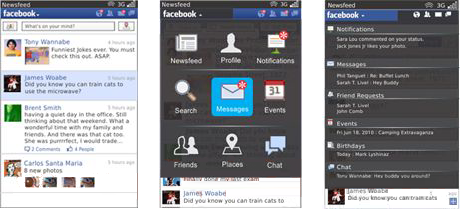Facebook for BlackBerry 2.0 includes chat; Kills lucrative 'chat market' segment

Facebook for BlackBerry 2.0, the next version poised for a Spring release, will include chat, according to recent screenshots which surfaced on the web earlier this week.
This is no surprise as the settings for Facebook for BlackBerry has included the permissions ability to login to Facebook Chat for some time, appearing in earlier versions of the mobile software.

But when Facebook opened up the chat protocols last year on Jabber (XMPP), an open messaging protocol supporting by many leading instant messengers, many BlackBerry developers jumped on the chat bandwagon and created applications to allow Facebook users to instant message on the go.
For months, the BlackBerry App World has been littered with dozens of Facebook chat applications from a variety of developers. Just in checking today, though many offer free trials for paid versions, there are at least eight Facebook chat applications out of the fifty top paid and free applications on the market.
This will lead to a problem for these developers, as soon, upon the release of Facebook for BlackBerry 2.0, an entire segment of this lucrative chat application market is going to fall flat on its face.
There is nearly no doubt that users will resort to the in-built functionality of the official Facebook application for the popular Generation Y smartphone, and leave the previous chat applications behind.
Should services like Facebook allow others to capitalise upon their protocols, or should developers be left in the dark?
The end user may not mind all that much, but this continues a tone with application developers that carried on from Twitter mid-last year, where it started rolling out its own URL shortening service. Though it had a groundbreaking change on the URL shortening market, it thankfully hasn't killed off competing services like 3.ly and bit.ly.
Is application innovation dead?